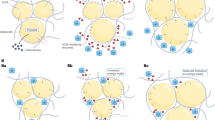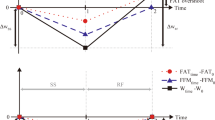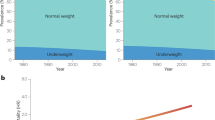Abstract
It has long been known that obesity is a high risk factor for cardiovascular diseases. In more recent years, the analysis of several large epidemiological databases has also revealed that, independently of excess weight, large fluctuations in body weight at some point earlier in life represent an independent risk factor for type 2 diabetes and hypertension—two major contributors to cardiovascular diseases. High cardiovascular morbidity and mortality have indeed been reported in men and women who in young adulthood experienced weight fluctuations (involving the recovery of body weight after weight loss due to disease, famine or voluntary slimming), or when weight fluctuations occurred much earlier in life and involved catch-up growth after fetal or neonatal growth retardation. This paper addresses the pathways from weight fluctuations to chronic metabolic diseases by focusing on the phenomenon of accelerated fat recovery (ie catch-up fat) after weight loss or growth retardation. Arguments are put forward that, during catch-up growth or weight recovery on our modern refined foods, the mechanisms of adaptive thermogenesis that regulate catch-up fat are pushed beyond the limits for which they were meant to operate and turn maladaptive. The consequences are enhanced susceptibilities towards skeletal muscle insulin resistance and overactive sympathetic activity, both of which are major contributors to the pathogenesis of chronic metabolic diseases. Since weight fluctuation earlier in life (independently of excess weight later in life) is an independent risk factor for metabolic diseases, the mechanisms by which body fat is acquired would seem to be at least as important as the consequences of excess fat per se in the pathogenesis of diabetes, hypertension and cardiovascular diseases.
This is a preview of subscription content, access via your institution
Access options
Subscribe to this journal
Receive 12 print issues and online access
$259.00 per year
only $21.58 per issue
Buy this article
- Purchase on Springer Link
- Instant access to full article PDF
Prices may be subject to local taxes which are calculated during checkout
Similar content being viewed by others
Author information
Authors and Affiliations
Corresponding author
Rights and permissions
About this article
Cite this article
Dulloo, A., Jacquet, J. & Montani, JP. Pathways from weight fluctuations to metabolic diseases: focus on maladaptive thermogenesis during catch-up fat. Int J Obes 26 (Suppl 2), S46–S57 (2002). https://doi.org/10.1038/sj.ijo.0802127
Published:
Issue Date:
DOI: https://doi.org/10.1038/sj.ijo.0802127
Keywords
This article is cited by
-
Association of protein-energy partitioning with body weight and body composition changes in adolescents with severe obesity
International Journal of Obesity (2022)
-
Plasticity of adipose tissue in response to fasting and refeeding in male mice
Nutrition & Metabolism (2017)
-
Body mass index growth trajectories associated with the different parameters of the metabolic syndrome at adulthood
International Journal of Obesity (2017)
-
Identification of skeletal muscle mass depletion across age and BMI groups in health and disease—there is need for a unified definition
International Journal of Obesity (2015)
-
Predictors of body composition changes during tuberculosis treatment in Mwanza, Tanzania
European Journal of Clinical Nutrition (2015)



